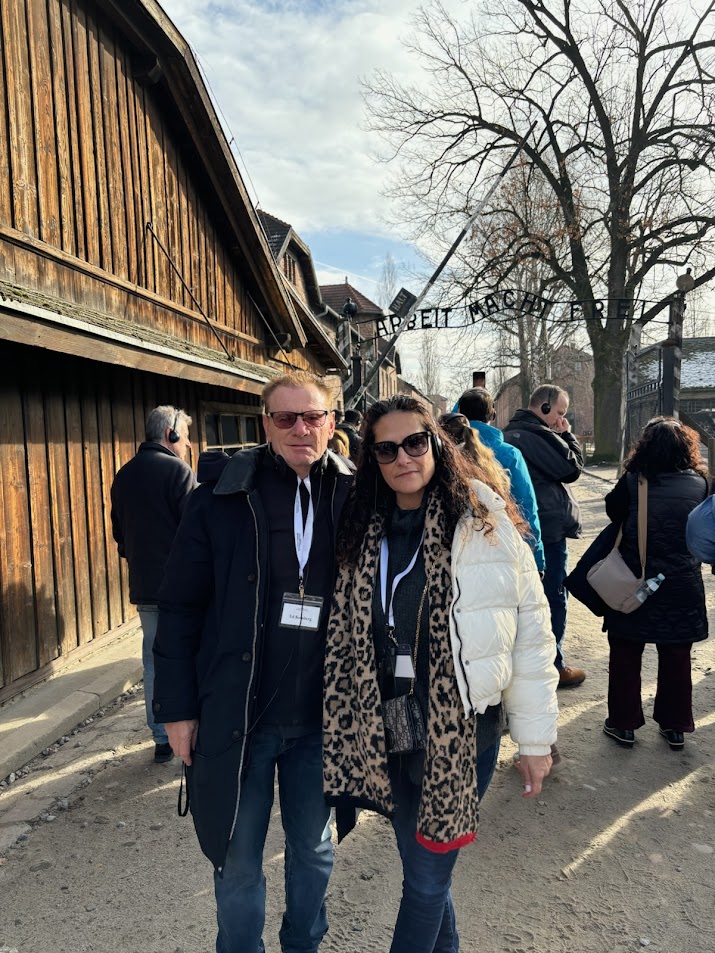80th Anniversary of the Liberation of Auschwitz: Remembering the Past, Defending the Future
January 27, 2025, marks the 80th anniversary of the liberation of Auschwitz, the Nazi concentration and extermination camp where over 1.1 million people, most of them Jews, were systematically murdered during the Holocaust. As the world pauses to remember the victims of one of the darkest chapters in human history, this solemn milestone is also an urgent call to confront antisemitism, honor survivors, and preserve historical memory for future generations.
The Horrors of Auschwitz
Located in German-occupied Poland, Auschwitz was a sprawling complex consisting of several camps, including Auschwitz I (the main camp), Auschwitz II-Birkenau (the extermination camp), and Auschwitz III-Monowitz (a labor camp). It became the largest of the Nazi concentration camps and the primary site of the Holocaust’s industrialized mass murder. Gas chambers, forced labor, starvation, torture, and medical experimentation claimed the lives of men, women, and children alike.
Among those killed were Jews, Romani people, Poles, Soviet prisoners of war, LGBTQ+ individuals, and others deemed undesirable by the Nazi regime. Auschwitz became a chilling symbol of what hatred, bigotry, and unchecked power can do when human dignity is stripped away and genocide becomes policy.
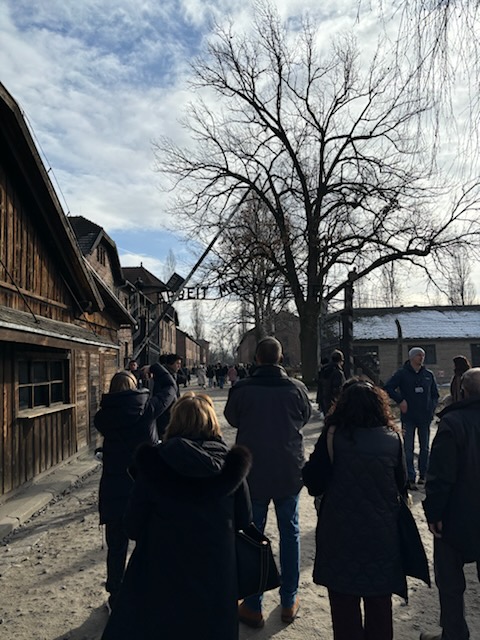
January 27, 1945: Liberation Day
The Soviet Red Army liberated Auschwitz on January 27, 1945. When Soviet troops entered the camp, they found approximately 7,000 emaciated survivors left behind by the fleeing Nazis, as well as evidence of unspeakable atrocities—crematoria, piles of belongings from victims, and mass graves. The world was only beginning to grasp the scale and cruelty of what had transpired inside the camp’s barbed wire fences.
In the decades since, survivors have bravely shared their stories, historians have documented the horrors, and memorials have been erected to honor the dead and educate the living. Yet even now, as we mark 80 years since the camp’s liberation, antisemitism and Holocaust denial persist, making remembrance not only a moral imperative but a necessity for the preservation of truth.
Voices of Remembrance: Stories That Echo Across Generations
The 80th anniversary ceremonies at Auschwitz and around the world include testimonies from survivors and their descendants, the lighting of memorial candles, and renewed pledges from governments and institutions to fight antisemitism and hatred. One such voice belongs to Dr. Edward Komberg, a Ukrainian-American chiropractor and Holocaust education advocate who fled with his family from Odessa, Ukraine, to the United States in 1972.
“Even though I wasn’t alive during the Holocaust,” Dr. Komberg says, “the shadow of that time hung over our family. We left Ukraine because of religious persecution and a legacy of fear that remained after the war. Today, I speak out because memory is resistance, and forgetting is complicity.”
Dr. Komberg has practiced chiropractic medicine for over 37 years and has become a community leader in advocating for Holocaust remembrance and the support of refugees. His perspective is especially poignant given the current challenges faced by Jewish communities and Ukrainian refugees today.
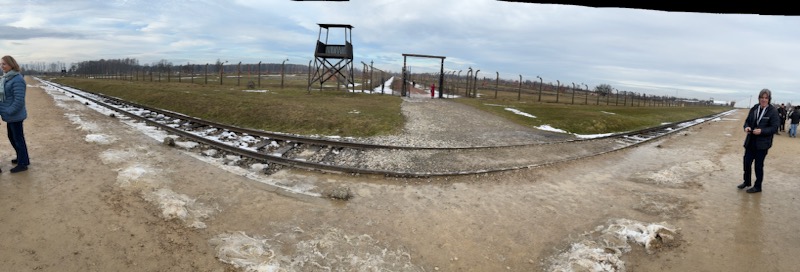
The Ukrainian-Jewish Connection
Ukraine was one of the most affected regions during the Holocaust. Over 1.5 million Ukrainian Jews were killed during what is known as the “Holocaust by bullets,” with massacres taking place in fields and forests rather than gas chambers. Odessa, Dr. Komberg’s hometown, saw mass executions and deportations during the Nazi occupation. Many Jewish families, like his, carried the trauma and memory of those years with them long after the war ended.
“I remember the stories my grandparents told of people disappearing, of hiding, of living in fear,” Dr. Komberg recounts. “That’s why Auschwitz is not just a historical place—it’s a warning. When I see what’s happening today, whether it’s antisemitism in the West or war in Ukraine, I think about how fragile peace is and how easy it is for the world to look away.”
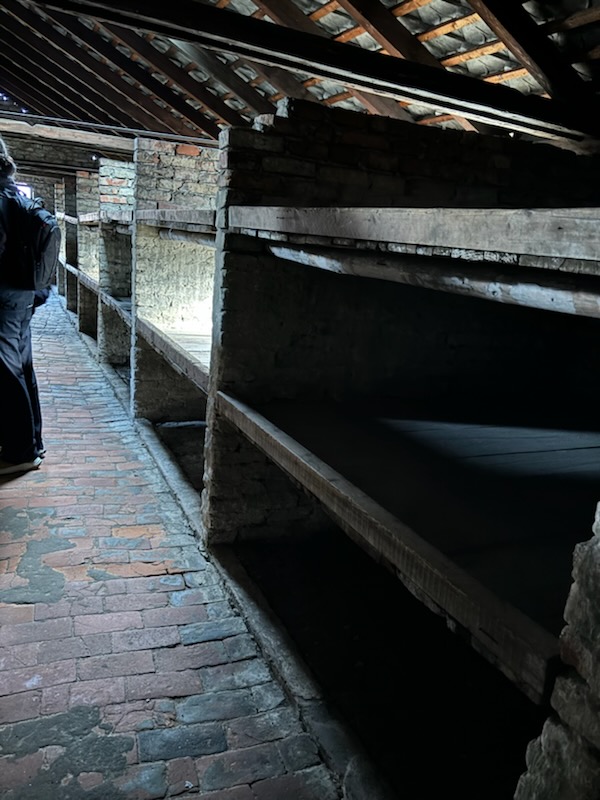
80 Years Later: A World Still Struggling with Hate
The lessons of Auschwitz are more vital than ever. In recent years, there has been a rise in hate crimes, Holocaust denial, and nationalism across Europe and the United States. According to the Anti-Defamation League, antisemitic incidents have reached record levels in several countries. Misinformation spreads rapidly online, and fewer young people are learning about the Holocaust in schools.
“I’m deeply troubled,” says Dr. Komberg. “We are losing survivors every day, and with them, the firsthand witnesses to this atrocity. That makes it all the more important to share their stories, support museums and educational programs, and speak out against hatred wherever we find it.”
Global Commemorations and Renewed Commitments
On this 80th anniversary, memorial events are taking place at the Auschwitz-Birkenau State Museum in Poland, where heads of state, survivors, and educators gather to honor the dead. In Jerusalem, Berlin, New York, and Kyiv, ceremonies and exhibitions mark the occasion. Digital campaigns and livestreams allow global audiences to participate, especially important as the COVID-19 pandemic altered in-person gatherings in recent years.
UNESCO and the United Nations, which declared January 27 as International Holocaust Remembrance Day, are encouraging governments to integrate Holocaust education into school curricula and to challenge hate speech online and offline. “It is not enough to say ‘Never Again’,” said the UN Secretary-General. “We must mean it, we must teach it, and we must live it.”
The Role of Holocaust Education
Education is central to preventing future genocides. Museums, documentaries, school programs, and survivor talks play a crucial role in conveying the truth of Auschwitz and the Holocaust. But education must be ongoing, inclusive, and responsive to modern threats. Initiatives like the Auschwitz Virtual Tour and testimonies preserved by organizations like the USC Shoah Foundation are helping to bring the truth to younger audiences in engaging ways.
“When I visit schools or speak at universities,” Dr. Komberg says, “I’m always struck by how many young people know very little about what happened. They’re shocked by the photos, the facts. And many of them realize, for the first time, how close humanity can come to total moral collapse. That awareness changes them.”
Preserving Memory in the Age of Misinformation
One of the growing challenges in Holocaust remembrance is combating misinformation. Conspiracy theories and denial are rampant on some social media platforms. Digitally altered images, false quotes, and coordinated campaigns attempt to undermine the reality of the Holocaust.
That’s why survivors, educators, and advocates like Dr. Komberg emphasize the importance of verified sources, firsthand testimony, and responsible journalism. “Auschwitz should not be reduced to a hashtag,” he says. “It’s a sacred place, a graveyard, and a warning. We need to teach people how to think critically, to ask questions, and to recognize propaganda when they see it.”
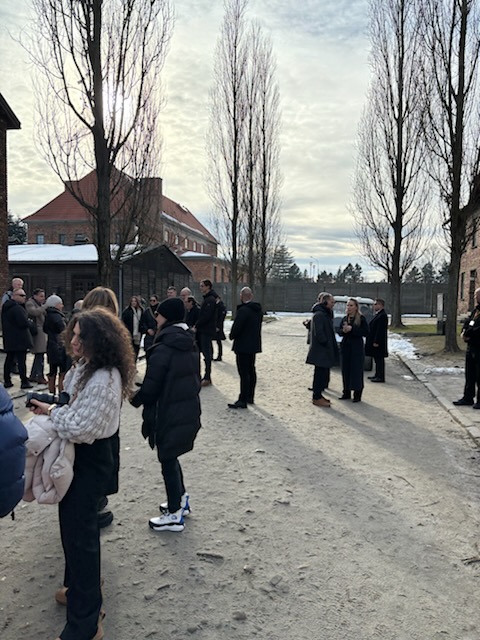
Legacy and Responsibility
As the number of living survivors dwindles, the responsibility to remember and teach passes to the next generation. Holocaust museums, Jewish organizations, refugee aid groups, and individuals around the world are working tirelessly to preserve the memory of Auschwitz and to advocate for a more just, tolerant society.
Dr. Komberg, in his chiropractic practice and public life, often uses the term “healing through remembrance.” It reflects his belief that confronting the past, no matter how painful, is essential for personal and societal growth. “You cannot erase pain,” he says. “But you can transform it into purpose.”
A Call to Action
The 80th anniversary of the liberation of Auschwitz is not only about honoring the past but also about shaping the future. As Dr. Komberg and others remind us, remembrance is not passive. It demands action—education, resistance to hatred, defense of the vulnerable, and commitment to human rights.
“Let us not wait for another tragedy to remind us what we failed to protect,” Dr. Komberg says. “Let us speak out now, learn now, and care now.”
As the world lights candles and bows its head in silence this January 27, let it also rise with determination—to protect truth, defend dignity, and ensure that the gates of Auschwitz remain a symbol of “Never Again” for all time.
About Dr. Edward Komberg: Dr. Komberg is a practicing chiropractor with over 37 years of experience. He and his family fled Odessa, Ukraine, to the United States in 1972 due to religious persecution. A lifelong advocate for Holocaust remembrance and refugee support, he speaks at educational institutions and community events across the country.
